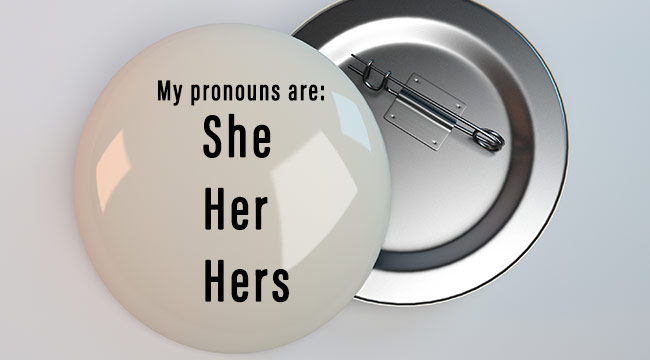
When it comes to interacting with people who identify as transgender or don’t fit into a gender binary, people often complain about not knowing how to label someone who doesn’t neatly fit into the mold of male/female. Some, so perplexed by this issue (they claim), even fight against the idea of people living outside of the lines that western society has created around gender. And in order to combat that and foster a sense of inclusivity, the University of Kansas has created a new program, one which makes talking about gender pronouns much easier. Because it involves pins.
How do pins fit into the topic of inclusivity? As part of the university’s “you belong here” campaign, which aims to foster togetherness among those who study and work at the university, the school library’s employees — and anyone else that wants one — can opt to wear a button that announced their preferred gender pronoun, putting the subject front and center and allowing for (hopefully) open conversation about gender.
The buttons come in three versions: “He him his,” ”She her hers” and, for people who don’t identify themselves as male or female, “They them theirs.”
“Because gender is, itself, fluid and up to the individual,” a sign at the libraries reads. “Each person has the right to identify their own pronouns, and we encourage you to ask before assuming someone’s gender. Pronouns matter! Misgendering someone can have lasting consequences, and using the incorrect pronoun can be hurtful, disrespectful, and invalidate someone’s identity.”
Of course, some people have already become outraged that opting to wear and give out such accessories was even considered by the university (not to mention four other schools who are working to make the voices of the marginalized both heard and welcome) — but this program isn’t about political correctness, and it’s not about making anyone who doesn’t want to wear a button (no one is required to) feel badly about their gender. It’s simply a small way of showing support for the trans and non-binary communities and allowing people who have historically (and currently) been discriminated against to know that they are welcome. And with violence and legislation against transgender people still a major issue in this country, it’s easy to see why this is important.






